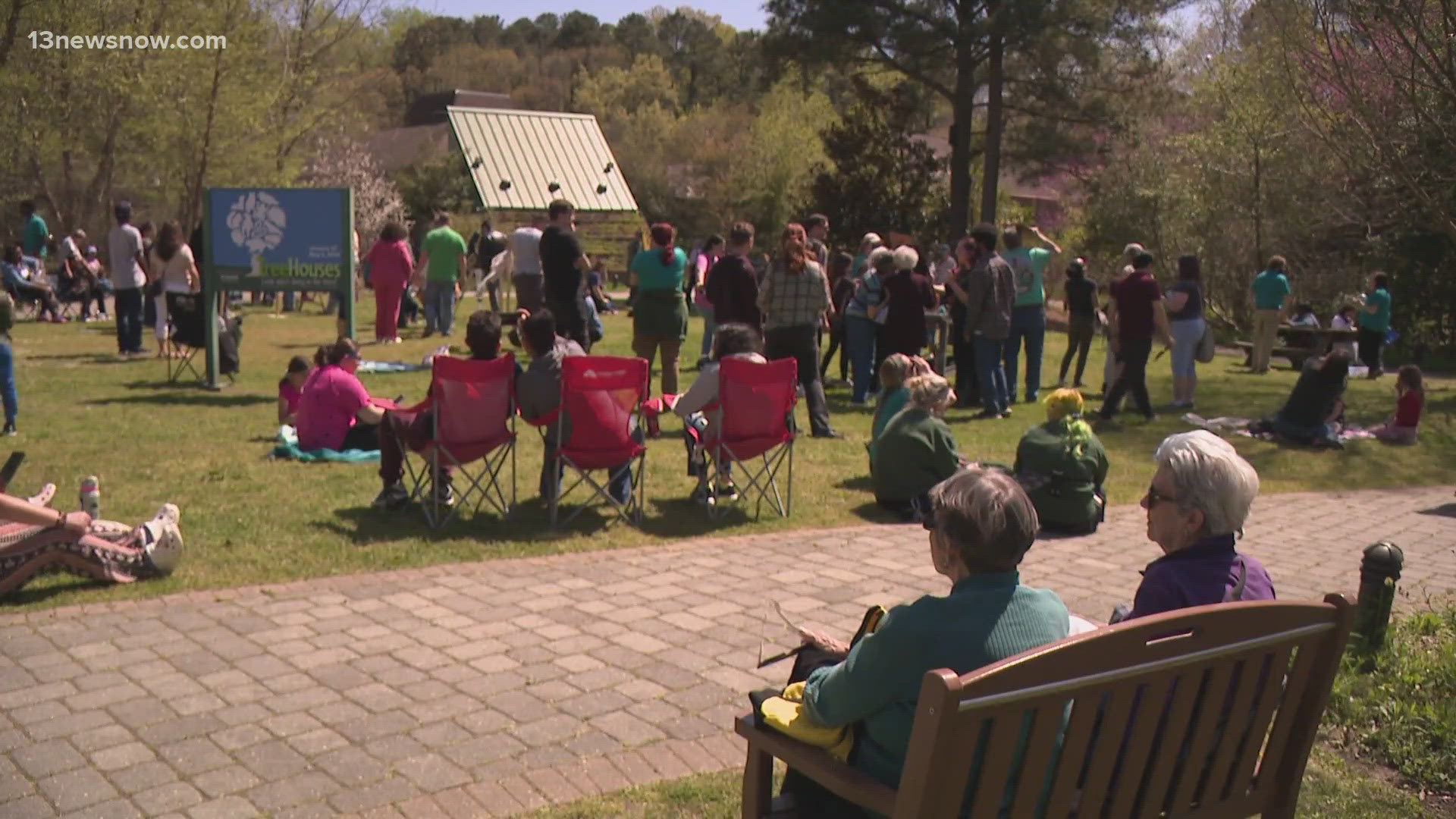NEWPORT NEWS, Va. — Virginia Living Museum staff and volunteers saw an incredible turnout Monday afternoon.
They used this moment in time as an opportunity not only to explain the science behind the eclipse but also to showcase other ways to see it in action besides the famed solar-viewing glasses.
Families from all over and people of all ages lined the grass on the museum's Conservation Lawn.
"It looks like a Pac-Man in my game, like a Pac-Man in my game," one little boy said.
"It's crazy. First it [the sun] was big. Now, it's very teeny and small," said one mother.
"I see the sun and a black dot," her daughter said.
The black dot was the moon traveling in front of the sun, which appeared in a familiar shape.
"It's like a crescent moon, almost, and it feels really cool out here," said another woman.
"It's a clear cut of it, so it was pretty exciting," said a Portsmouth man.
It was also exciting for museum staff and volunteers who brought out telescopes, arc welder's glass and a NASA livestream.
Largely, however, spectators used solar-viewing glasses to marvel at the partial solar eclipse.
Even though the Hampton Roads region didn't fall in the path of totality, Education Volunteer Manager Olivia Lacher with Virginia Living Museum still described it as a special event.
"The moon is about 400 times smaller than the sun, but the sun is 400 times further away from the earth than the moon is. So, it's that coincidence we're able to see the moon cross over and cover the sun," said Lacher.
The 757 saw peak coverage with the moon covering roughly 80% of the sun at 3:20 p.m.
"Eclipses can happen anywhere in the world. So, for it to happen this close to Virginia and over the continental United States is pretty unique. The last one was in 2017, the next one won't be until 2044 over the continental United States," said Lacher.
Additionally, if you're an astronomy enthusiast or want to learn more about it, Virginia Living Museum hosts free stargazing parties every second Saturday of the month.

